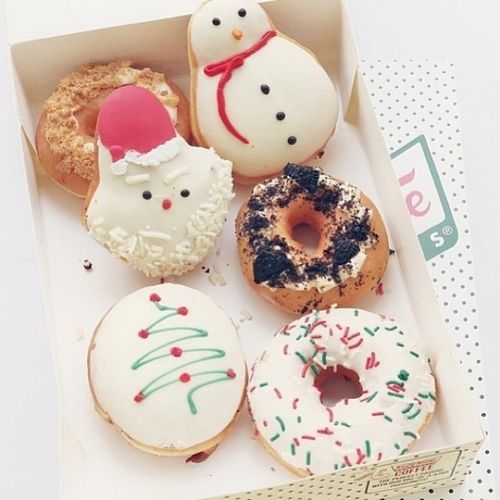When it comes to presenting and preserving delicious treats, individual doughnut boxes play a significant role. Selecting the right material for doughnut packaging ensures freshness, quality, and an enhanced customer experience. For businesses, these boxes also serve as an extension of their brand identity, reinforcing values such as quality, sustainability, and creativity. In this article, we’ll explore the materials commonly used for these boxes and why choosing the right one is essential for both businesses and consumers alike.
The Importance of Choosing the Right Packaging Material
The material of a doughnut box significantly impacts its functionality and appeal. Packaging does more than just hold the doughnut; it protects it from external elements, keeps it fresh, and offers an attractive presentation. This is especially critical for food items, as improper packaging can affect taste, freshness, and overall customer satisfaction. For instance, a well-designed box can keep doughnuts fresh longer and prevent them from getting squashed, ensuring the product reaches the consumer in perfect condition.
In addition, the type of material used in individual doughnut boxes is increasingly a point of differentiation for brands. Many consumers today prioritize eco-friendly packaging, and brands that use sustainable materials in their custom product packaging can stand out. Choosing the right material also influences a customer’s perception of a brand’s values and commitment to quality, making packaging material a strategic decision for any business in the food industry.
Common Materials Used in Individual Doughnut Boxes
There are several popular materials used to create individual doughnut boxes, each with unique benefits and considerations. Below, we’ll explore some of the most common options:
1. Cardboard
Cardboard is one of the most widely used materials for individual doughnut boxes due to its versatility, affordability, and eco-friendliness. Cardboard boxes are sturdy enough to protect delicate doughnuts from getting squished or damaged during transportation, making them an ideal choice for bakery items. They are also easily customizable, allowing brands to incorporate their logos, colors, and designs to create custom product packaging that aligns with their brand identity.
Another advantage of cardboard is its recyclability. Cardboard doughnut boxes are typically biodegradable, which aligns with the increasing demand for sustainable packaging. For businesses aiming to convey an eco-friendly image, cardboard is an excellent choice. It provides a balance of strength and sustainability, ensuring both product safety and a minimal environmental impact.
2. Paperboard
Paperboard is another popular option, especially for bakery products that require less structural strength than heavy cardboard but still need a durable and lightweight solution. Paperboard is known for its smooth, high-quality finish, which provides a professional and polished look that appeals to customers. It can also be customized with various colors and finishes, allowing bakeries to create visually appealing custom product packaging that enhances the doughnut’s presentation.
In addition to its aesthetic appeal, paperboard is also lightweight and easy to handle. This makes it convenient for customers to carry, and it is an ideal option for businesses looking to balance quality and cost-effectiveness.
3. Kraft Paper
Kraft paper has become a popular choice for brands that emphasize sustainability in their packaging. Known for its natural, rustic look, kraft paper conveys an eco-friendly message to consumers and has a sturdy composition that makes it suitable for holding bakery items. Many consumers appreciate the simple, natural aesthetic of kraft paper, which is also 100% recyclable and biodegradable.
In the context of individual doughnut boxes, kraft paper provides a unique, eco-conscious option that appeals to consumers who prioritize environmentally friendly packaging. While it may lack the rigidity of cardboard or paperboard, kraft paper is durable enough to hold individual doughnuts, making it a sustainable choice for custom product packaging that aligns with green business practices.
4. Plastic
Plastic remains a common choice for packaging, although it is primarily used for clear display boxes or for boxes that feature a clear window. Plastic packaging has a few advantages: it is highly resistant to moisture, which can help keep doughnuts fresh by preventing them from becoming soggy. Clear plastic windows also allow customers to view the product inside, which can be an effective way to showcase visually appealing items like doughnuts.
However, plastic packaging is less eco-friendly than other options, and many businesses are now moving towards recyclable or biodegradable plastic to minimize their environmental impact. For businesses that prioritize the visual display of their products, clear plastic can be a practical choice, although it is essential to consider the ecological footprint and consumer preferences for sustainable options.
5. Aluminum Foil
Although not as commonly used for individual doughnut boxes, aluminum foil is sometimes employed for packaging specialty items that require extra protection. Aluminum foil packaging provides excellent insulation and acts as a barrier against moisture and odors, helping to preserve the doughnut’s freshness. This type of material can be useful for specialty doughnuts that need to retain warmth or have ingredients that are sensitive to exposure.
While aluminum foil offers excellent protection, it is less common for everyday individual doughnut boxes. It tends to be used only in cases where insulation is essential or where the packaging needs to provide a barrier to retain the doughnut’s quality over longer periods.
Factors to Consider When Choosing Packaging Materials for Individual Doughnut Boxes
Choosing the right material for individual doughnut boxes involves balancing several factors, including cost, durability, environmental impact, and brand alignment. Here are some key considerations:
- Cost: Cardboard and paperboard are typically more cost-effective than other materials, making them ideal for businesses with high packaging volumes. Plastic may also be economical, but eco-friendly plastic alternatives can be more expensive.
- Durability: Materials like cardboard and aluminum foil offer excellent durability, while kraft paper may be less rigid but still effective for single-serving packaging.
- Environmental Impact: Consumers are increasingly choosing brands that offer eco-friendly packaging. Materials like cardboard, paperboard, and kraft paper are biodegradable and recyclable, making them preferable for brands looking to minimize their ecological footprint.
- Appearance: The aesthetic appeal of the box can impact a customer’s perception. High-quality finishes on paperboard or the natural look of kraft paper can create a memorable unboxing experience that enhances brand perception.
Benefits of Custom Product Packaging for Doughnuts
Customizing individual doughnut boxes offers several benefits that extend beyond basic functionality. Custom packaging allows businesses to create a unique brand experience that can distinguish them from competitors and make a memorable impression on customers. Branded packaging can communicate a company’s values, create an emotional connection with customers, and enhance brand recognition.
Moreover, custom product packaging provides businesses with an opportunity to tell their brand story visually. For instance, a bakery focused on sustainability might use kraft paper with minimalistic designs to convey an eco-conscious message. On the other hand, a luxury bakery might opt for premium-quality paperboard with embossed logos to project a high-end image. Customization options include logos, color schemes, and unique box shapes, all of which can reinforce brand identity and increase customer loyalty.
Sustainable Options for Doughnut Packaging
Sustainability in packaging has become a crucial factor in consumer decision-making. With rising awareness of environmental issues, many consumers prefer brands that use eco-friendly packaging materials. This is especially relevant for individual doughnut boxes, as they are typically single-use items. Here are some sustainable options for doughnut packaging:
- Recycled Cardboard: Made from post-consumer recycled material, recycled cardboard offers a low-impact alternative without compromising durability. It’s an ideal option for companies looking to reduce their carbon footprint.
- Kraft Paper: As mentioned earlier, kraft paper is biodegradable and recyclable, making it an excellent choice for environmentally conscious brands. It also has a natural look that appeals to consumers who value simplicity and sustainability.
- Biodegradable Plastic: Although traditional plastic is not eco-friendly, some companies now offer biodegradable plastic made from plant-based materials. This allows brands to retain the benefits of plastic without the long-term environmental harm. More
Trends in Individual Doughnut Box Design
Today’s packaging design trends prioritize simplicity, functionality, and transparency. Minimalistic designs have become popular, as they allow the doughnut to be the main attraction, with the box serving as a subtle but elegant frame. Many individual doughnut boxes now feature transparent windows, which allow customers to see the doughnut inside, creating an enticing visual experience without the need to open the package.
Brands are also incorporating bold and bright colors to enhance their packaging appeal. Using vibrant colors or intricate patterns can make the packaging more eye-catching and memorable. This type of design can reinforce brand identity and make the product more recognizable, which can lead to increased customer loyalty.
Conclusion
Selecting the right material for individual doughnut boxes is a critical decision that affects product presentation, preservation, and brand perception. Each material—whether cardboard, paperboard, kraft paper, plastic, or aluminum foil—has unique advantages that cater to specific business needs and brand goals. For businesses aiming to enhance their brand identity, custom product packaging offers an effective way to connect with customers, enhance brand recognition, and convey company values.
In today’s eco-conscious market, choosing sustainable materials like recycled cardboard or kraft paper can also provide a competitive edge. By investing in thoughtful, high-quality packaging, businesses can create a memorable unboxing experience that leaves a positive impression and encourages repeat purchases.








